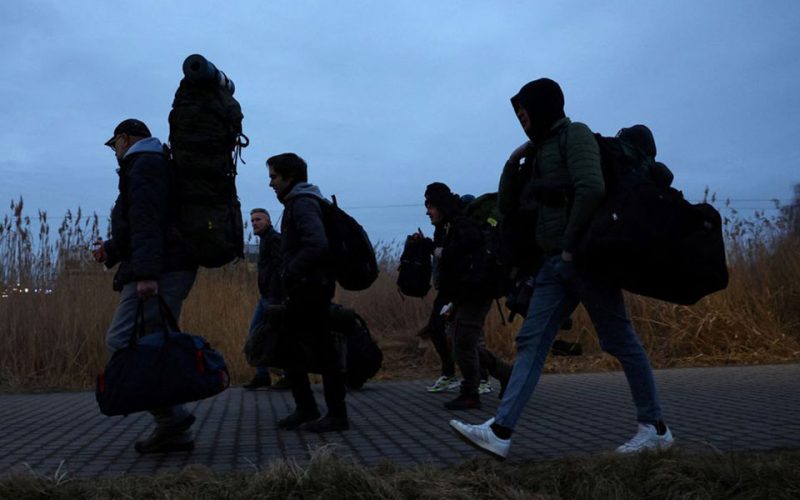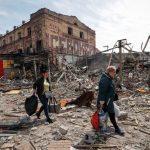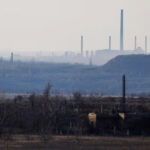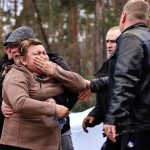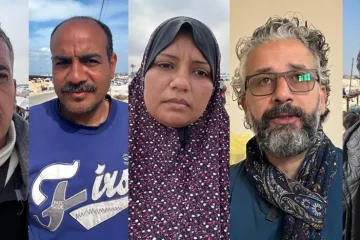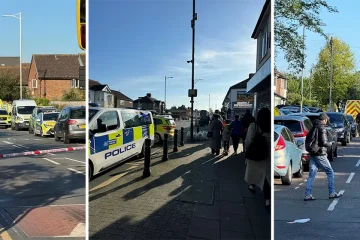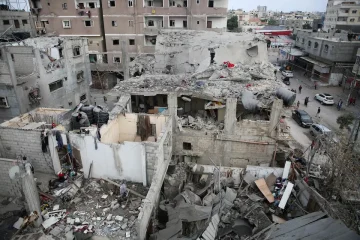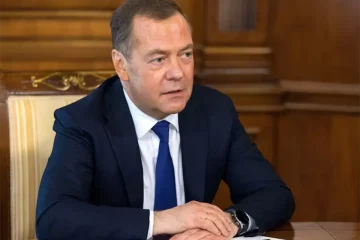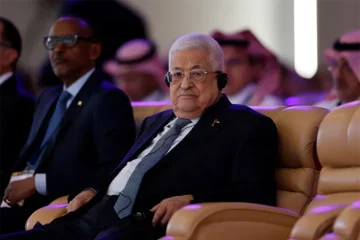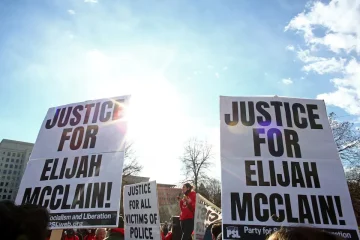KRISZTINA THAN, ALICJA PTAK and JAN LOPATKA
THOUSANDS of people fleeing fierce fighting in Ukraine streamed across central European border crossings as Russian troops bombarded Ukrainian cities and looked poised to advance on the embattled capital, Kyiv.
Western nations raced to supply humanitarian and military aid while piling pressure on a Russian economy already reeling under sanctions, with U.S. President Joe Biden warning Vladimir Putin that the Russian leader had “no idea what’s coming”.
After initial Russian failures to capture major cities, Western analysts said Moscow appeared to have shifted tactics, including devastating shelling of built-up areas to subdue stubborn resistance.
The United Nations has estimated that more than 870,000 people have now fled Ukraine since the invasion began in what the UN Refugee Agency has warned looks set to become Europe’s largest refugee crisis this century and displace millions.
Nearly a week into the invasion, which Putin has called “a special military operation”, the flood of fleeing people showed few signs of easing.
At Tiszabecs, on Hungary’s border with Ukraine, Julia from Kyiv cradled a baby heavily bundled against the cold and wearing a woollen cap with animal ears. She told of leaving behind her husband to fight, and of three friends who were killed in a missile attack the day she left.
“I spent the night in the basement and then we moved on foot to the railway station,” the 32-year-old said. “If there were no children with me I would have stayed with my husband.”
At a train station in Kosice, eastern Slovakia, Galia Ugolnikova, 35, from Kyiv, was heading to Poznan in Poland with her 5-year-old son, aiming to stay with friends of friends.
“On Thursday morning, we took our things, we had a bag ready – the most important documents, money,” she said. “We dressed our child, got into the car, and left with the first wave.”
With men of conscription age obliged to stay and help in the defence, her family is now separated by war.
At the Korczowa border crossing, near the Ukrainian border in southeast Poland, European Council President Charles Michel sought to comfort a crying woman with a hug as he visited with Polish Prime Minister Mateusz Morawiecki.
The European Commission on Wednesday proposed granting temporary protection to those fleeing, including a residence permit and access to employment and social welfare, in legislation that would apply to all member states.
“Our moral task – European task – is to be at the front line to support, Michel said. “We will do everything possible to bring help.”
RYE SOUP AND SIM CARDS
Across central Europe, where memories of Moscow’s dominance in the wake of World War Two run deep, thousands of volunteers converged on the borders, bringing food, clothes and blankets.
Most refugees have crossed into the European Union – membership of which Ukraine aspires to – in eastern Poland, Slovakia, and Hungary and northern Romania. Authorities have pitched tents to provide medical aid and process asylum papers.
Michal Piech, a paramedic, is working at Medyka, Poland’s busiest border crossing, treating ailments ranging from hypothermia to the mental strain of war.
“We were completely overwhelmed,” he said.
At the train station in Przemysl, a town of about 60,000 just west of Medyka, volunteers handed out cookies, beverages and sweets, as well as hot meals such as rye soup and schnitzel to the thousands awaiting onward transport across Europe.
Dozens of folding beds pitched temporarily inside offered rest for some, exhausted by long hours on war-time roads and long queues to cross the border. Others could make use of the free SIM cards and strollers on offer.
Local officials in Przemysl said they were working to set up humanitarian centres on the Ukrainian side of the border.
As the EU sought to absorb those displaced by a war on its doorstep, many train operators offered free travel for the refugees, and fees for crossing the Oresund bridge, connecting Denmark and Sweden, were waived for cars from Ukraine.
Low-cost carrier WIZZ Air said it would provide 100,000 free seats to refugees on short-haul flights leaving Poland, Slovakia, Hungary and Romania in March.
About half of the refugees entering Poland are children and Polish public TV said it would stream shows in Ukrainian.
In Poland, whose Ukrainian community of around 1 million is the region’s largest, the government said more than 450,000 arrivals had crossed the border so far, while Romanian border police data showed 118,000 Ukrainians had crossed there. Hungary said more than 100,000 had arrived.
Among the fleeing Ukrainian women and children are many of the thousands of foreigners who were studying or working there.
Around 250 Indian students who fled into Romania through the checkpoint at Siret spent Tuesday night in a sports gymnasium in the town of Voluntari, near the capital Bucharest.
“I have many Ukrainian friends left there and I’m really sad for them,” said Aman Sharma, 20, an Indian medical student who fled from Chernivtsi in western Ukraine.
“My last words were ‘take care’. I don’t know if I’ll be able to meet them again or not.”

